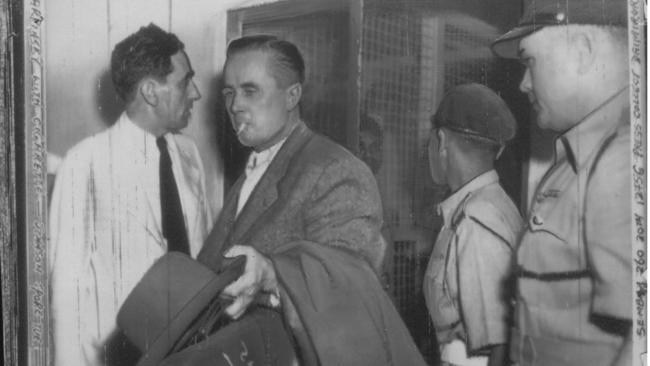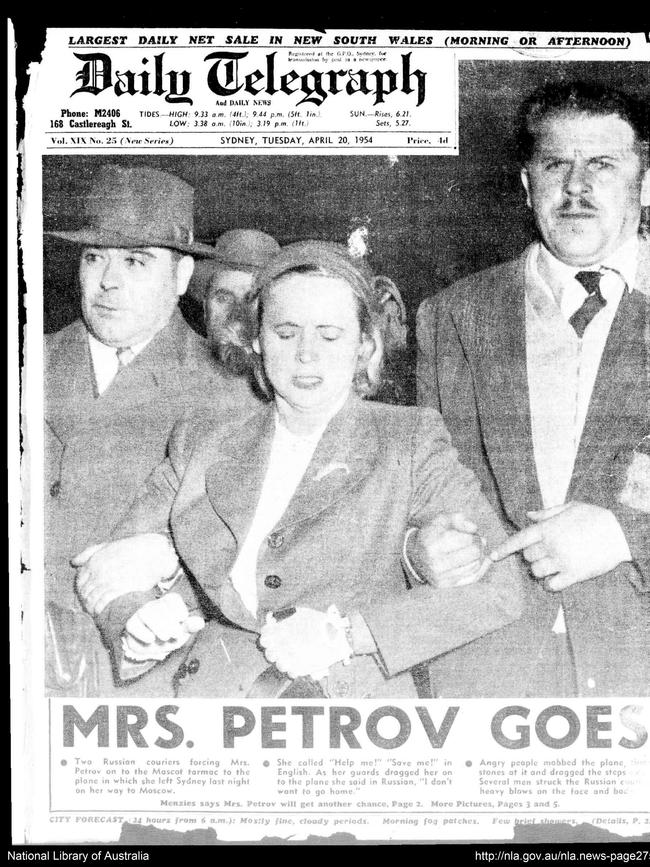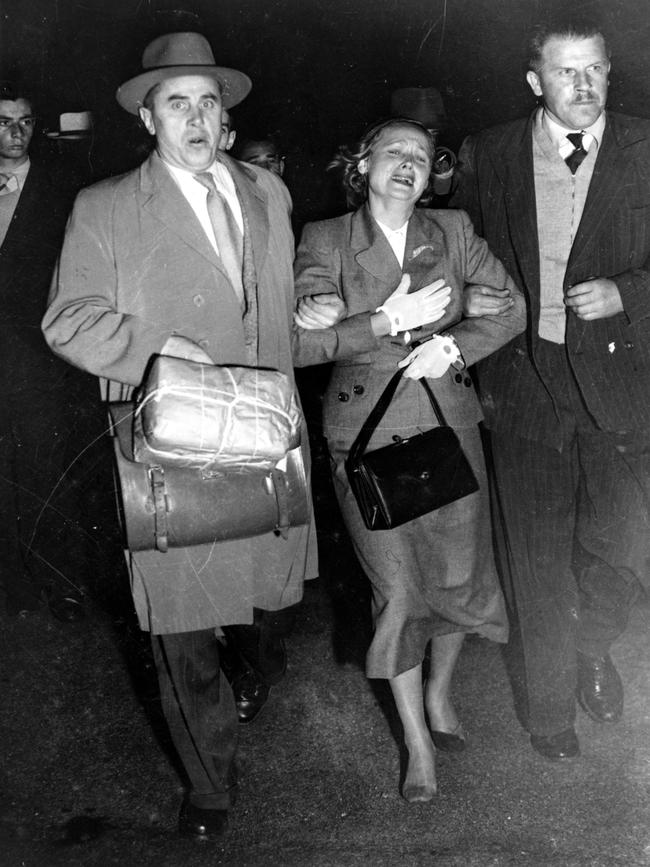The Petrov Affair and international espionage in Australia
The news of a Brisbane couple accused of being Russian spies has sparked memories of other famous cases including the Petrov Affair 70 years ago.

QLD News
Don't miss out on the headlines from QLD News. Followed categories will be added to My News.
Australia is not quite the hotbed of international espionage as, say, the US or UK, where shadowy spy scandals have made headlines over the years.
But for a relatively sparsely-populated country Down Under, a long way from the likes of Washington, London, Moscow and Beijing, we’ve had our share of spy incidents.
The most famous was undoubtedly the “Petrov Affair”.
It was 1954, the height of the Cold War between the West and Russia, and Soviet spies Vladimir Petrov and wife Evdokia were masquerading as diplomats at the Soviet embassy in Canberra.

When Mr Petrov accepted an offer to defect, having been wooed by ASIO agents with cash and visits to Kings Cross brothels, his wife was detained inside the embassy for two weeks.
She was then bundled onto a plane bound for Moscow at Sydney Airport by burly KGB agents, as hundreds of angry anti-Communist protesters rallied.
But when the aircraft stopped in Darwin to refuel, ASIO officials seized Mrs Petrov and offered her asylum.
The incident sparked a royal commission which uncovered allegations of an extensive Soviet spy ring in Australia, with accused operatives including two staff members of Labor leader ‘Doc’ Evatt.
Australian embassy staff in Moscow were expelled, Russian embassy staff in Canberra were recalled and diplomatic relations were suspended for almost a year.
The Petrovs eventually settled in suburban Melbourne under the names Sven and Anna Allyson, and were given a pension.
There have been more recent tensions between Australia and Russia over alleged espionage, with new laws rushed through federal parliament last year to stop Moscow building a new embassy in Canberra because of security concerns.

Australia and China have also engaged in tit-for-tat spying accusations, including in 2019 when reports surfaced of an alleged attempt by Beijing to infiltrate federal parliament by recuiting a spy to run in the Melbourne seat of Chisolm.
The “spy” was reportedly Melbourne car dealer and former Liberal Party member Bo ‘Nick’ Zhao, who was later found dead in a Melbourne hotel room. But an inquest found he had committed suicide over financial problems.
Australia was plunged into international controversy in 2004 after revelations the Australian Secret Intelligence Service had bugged the East Timor prime minister’s office in a bid to get the upper hand in negotiations of the rich oil and gas fields in the Timor Gap.
In 2018, a former ASIS intelligence officer who led the bugging later pleaded guilty to national security law breaches and received a three-month suspended jail term.
He was dubbed “Witness K’ and his identity was kept secret under the Intelligence Services Act.





